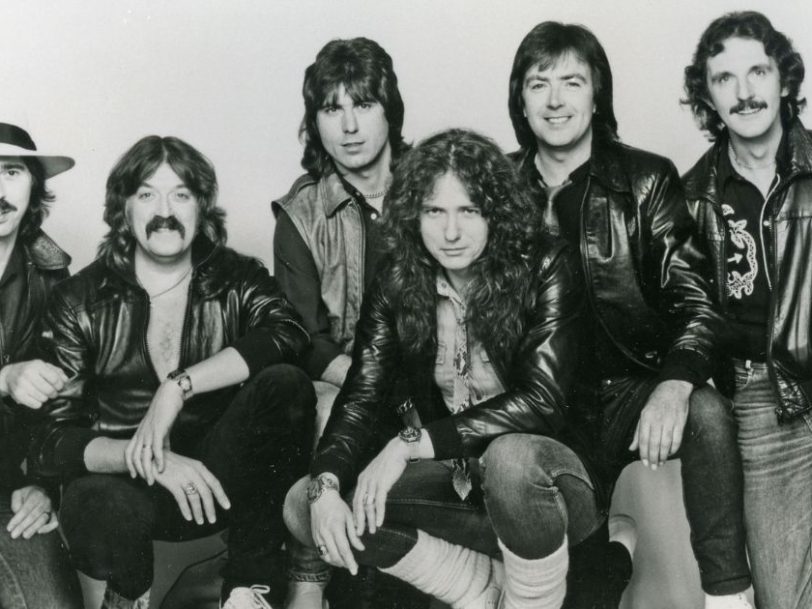The old adage tells us never to judge a book (or, in this case, a record) by its cover. But while that may not quite hold for the worst album covers in the world, it’s sage advice where Whitesnake’s second album, Lovehunter, is concerned. First released towards the end of 1979, it rewarded the band with their first UK Top 30 success, but that achievement is often overlooked because of, well… that sleeve.
Listen to ‘Lovehunter’ here.
“What he wrote was completely tongue-in-cheek”
They were different times, of course, but even in the notably less PC-inclined late 70s, an album cover depicting a naked woman straddling the coils of a giant serpent was asking for trouble. Criticism came courtesy of music writers such as Sounds’ Robbi Millar, who noted that the sleeve led to the discussion of sexism in hard rock being “batted around like an out of control tennis ball”.
It didn’t help the band’s cause when frontman David Coverdale came out fighting in a subsequent Sounds interview with a more sympathetic journalist, Phil Sutcliffe. In the resulting feature, the singer was quoted as saying, “We’re exercising the male fantasy of being a peacock and strutting. We are playing cock-rock. We are bathing in innuendo.”
“David believed those things was alright [to say] because he’d convinced himself they were,” lead guitarist Bernie Marsden told Classic Rock four decades later. “That said, there were times when Jon [Lord, keyboardist] and I would see something he’d said in the Melody Maker or whatever and we’d wrinkle our noses. But David was the singer and he did the interviews.”
Speaking in 2019, Marsden acknowledged that he “can understand” the accusations – which also extended to Lovehunter’s lyrics. Admitting that the rest of the band “didn’t really take a lot of notice of the lyrics”, the guitarist also felt that some of Coverdale’s finer moments got overlooked in the controversy: “David wrote some magnificent ones like Ain’t Gonna Cry No More. What people didn’t realise was that what he wrote was completely tongue-in-cheek.”




